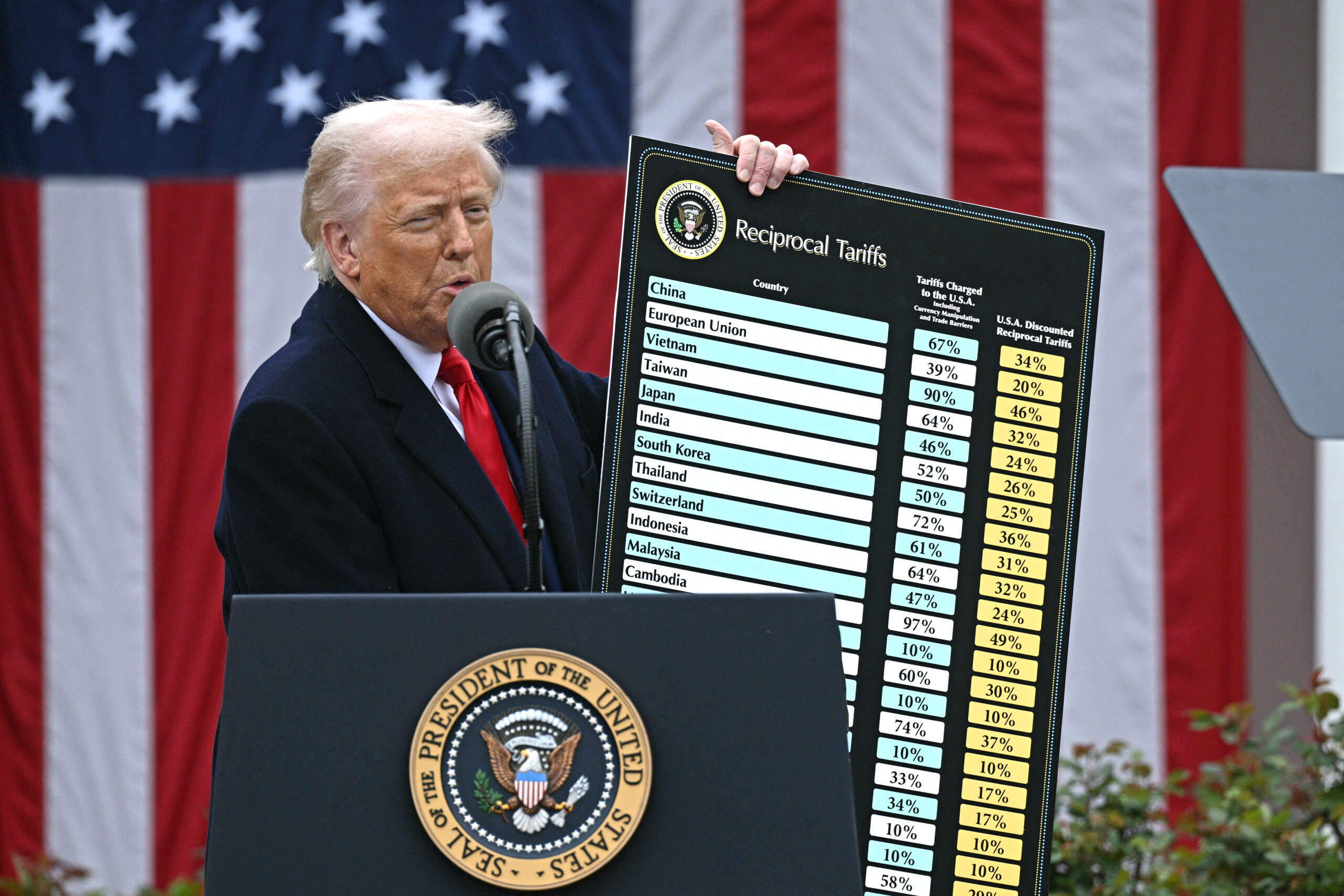Brussels – After the U-turn by Donald Trump on tariffs and Brussels’ subsequent step back, it is now time to sit down at the table again. There are three months to find an agreement and avoid more moments of panic like those experienced in recent days on both sides of the Atlantic. Buoyed by Washington’s misstep, Ursula von der Leyen sharpens her claws and warns Donald Trump. In case of “unsatisfactory” negotiations, the EU is ready to strike US big tech companies doing business in Europe.
In an interview with the Financial Times, the president of the European Commission warned the White House of the risk of escalation if the talks fail. The EU would be ready to revive and extend the trade war to service exports, for example, by imposing a tax on digital advertising revenues on giants such as Meta, Google, and X. Brussels has the means to do so: the so-called European bazooka — the anti-coercion tool that came into force in December 2023 but yet to be used, makes available to the 27 member states – in the event of deliberate trade threats from third countries – a range of countermeasures ranging from tariffs to restrictions on trade in services and aspects of intellectual property rights, to restrictions on access to foreign direct investment and government procurement.
“There is a wide range of countermeasures,” von der Leyen admitted. Initially designed primarily to respond to Chinese and Russian pressure, no one in Brussels would have imagined taking this tool out of the closet to use it against its longtime ally. The EU leader clarified that the priority is to seek a “fully balanced” agreement with Washington in this 90-day window. In trade wars, “there are no winners, only losers,” von der Leyen reiterated to the FT for the umpteenth time.

Brussels has identified the Achilles’ heel of the US to use as leverage in forcing negotiations. In its clumsy calculations used to impose tariffs on the rest of the world, the US administration only considered the trade in goods, leaving consciously aside the services market. As far as the EU is concerned, while it is true that in 2023, Brussels recorded a trade surplus for goods of 157 billion euros with Washington, the balance of trade in services marks a European deficit of 109 billion euros vis-à-vis the United States.
“Companies that offer services make a good business in this [EU] market. And the vast majority of the services, 80 percent of the services, are coming from the US. So again, we want a negotiated solution that is the best for us, all of us,” von der Leyen warned. Brussels could play the card of a tax on advertising revenues from digital services at the negotiating table, applied throughout the single market. On the other hand, the EU executive president has ruled out concessions on the revision of “untouchable” regulations, such as those governing the digital services market. She also clarified that Brussels would not negotiate on VAT either: “These are not in the negotiation packages because they are sovereign decisions,” she explained to the FT.
Anything can happen in 90 days with the unpredictability of the White House. That is why von der Leyen wanted to set her starting position for the negotiations. After the astounding reversal, Trump seems more like the dog that barks but does not bite, while von der Leyen shows her teeth.
English version by the Translation Service of Withub
![La riunione dell'Eurogruppo a Varsavia [11 aprile 2025]](https://www.eunews.it/wp-content/uploads/2025/04/eurogruppo-250411-350x250.png)

![La presidente della Commissione europea, Ursula von der Leyen, alla conferenza annuale degli ambasciatori [Bruxelles, 4 febbraio 2025]](https://www.eunews.it/wp-content/uploads/2025/02/vdl-ambasciatori-350x250.png)





